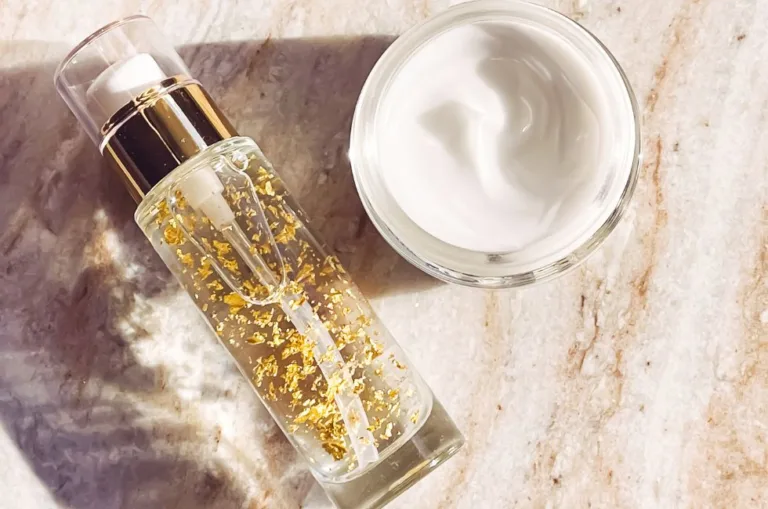
Have you ever found yourself pondering the choice between a hot or cold shower, wondering which is truly better for you? This seemingly simple decision has sparked a surprising amount of debate and curiosity. On one hand, cold showers are often touted for their invigorating effects, believed to awaken the senses and potentially boost overall health. On the other, hot showers are synonymous with relaxation and comfort, offering a soothing escape at the end of a long day. But what does each really offer, and more importantly, which is the right choice for you?
Benefits of Cold Showers
Have you ever considered starting your day with a blast of cold water? It might sound daunting, but cold showers come with a surprising array of benefits that could make them worth the initial chill. Here’s why taking the plunge into cooler waters might be a game-changer for your health and well-being:
Boosts Alertness and Energy Levels: The shock of cold water jump-starts your body, leading to a natural increase in heart rate and a rush of blood through your body. This reaction can wake you up, leaving you feeling more alert and energized.
Enhances Circulation: Cold water causes blood in your skin to move to your organs to maintain ideal body temperature. This process can improve circulation, vital for overall cardiovascular health.
Supports Immune System: Some studies suggest that regular cold showers might stimulate the immune system, increasing the number of white blood cells in your body, which could help fight off illness.
Promotes Skin and Hair Health: Cold water can help to tighten pores and reduce under-eye puffiness. It’s also less harsh on your hair, potentially leading to shinier, healthier-looking locks.
Can Aid in Weight Loss: Exposure to cold temperatures is thought to activate brown fat in the body, a type of fat that burns calories to generate heat. This could potentially assist in weight management efforts.
Reduces Muscle Soreness: Post-exercise, a cold shower might help reduce muscle soreness, making it a popular choice among athletes and fitness enthusiasts.
Remember, the key is to start gradually. Begin with a warm shower and slowly decrease the temperature to a level that’s comfortable yet stimulating. Over time, you may grow to appreciate the invigorating sensation of a cold shower.
Benefits of Hot Showers
While the thought of a cold shower might send shivers down your spine, the idea of a hot shower likely conjures feelings of relaxation and comfort. Hot showers are more than just a soothing ritual; they offer several health benefits that are worth considering:
Muscle Relaxation and Pain Relief: The warmth from a hot shower helps to relax tense muscles and can soothe stiffness and soreness. It’s an ideal remedy after a long day or an intense workout.
Stress Reduction: The heat from a hot shower stimulates the body to release endorphins, the ‘feel-good’ hormones, which can reduce stress and promote a sense of well-being.
Improved Sleep Quality: Taking a hot shower before bed can help to lower your body’s internal temperature afterward, which signals to your body that it’s time to sleep. This can improve the quality of your sleep.
Opens Up the Airways: For those with colds or allergies, hot showers can help to decongest your nasal passages, making breathing easier.
Skin Cleansing: The steam from a hot shower opens up pores, which can help to release trapped dirt and oil. However, it’s important to not overdo it, as too much heat can strip away essential oils from your skin.
Enhances Blood Circulation: The hot water causes blood vessels to dilate, which improves circulation. This increased blood flow can help with healing and regeneration.
While hot showers are indeed comforting, it’s crucial to be mindful of the temperature. Excessively hot water can dry out your skin and hair. Keeping your shower warm, rather than scalding, is a healthier choice for your skin.
When to Choose Cold Showers
Deciding between a hot or cold shower can depend on various factors, including your immediate needs, health condition, and even your mood. Here are some scenarios where opting for a cold shower might be particularly beneficial:
When You Need an Energy Boost: If you’re feeling lethargic or struggling to wake up, especially in the morning, a cold shower can provide an instant energy surge.
Post-Workout Recovery: Athletes often use cold showers to reduce muscle soreness and speed up recovery after intense physical activity.
During Hot Weather: On sweltering days, a cold shower can be a refreshing way to cool down your body temperature.
When Trying to Enhance Mental Alertness: If you need to sharpen your focus, perhaps for an important meeting or project, the invigorating effect of a cold shower can help clear your mind and improve concentration.
For Skin and Hair Health: If you’re aiming for shiny hair and vibrant skin, cold showers can be more beneficial than hot ones, as they don’t strip away natural oils.
When Seeking to Boost Immunity: Regular cold showers might strengthen your immune system, making them a good choice during flu season or if you’re prone to catching colds.
It’s important to listen to your body and start slowly, particularly if you’re not accustomed to cold showers. Gradually lowering the water temperature can help your body adapt more comfortably.
When to Choose Hot Showers
While cold showers have their perks, hot showers remain a popular choice for many, and for good reason. Here are some situations where a hot shower might be more advantageous:
To Relax and Unwind: After a stressful day, a hot shower can be a sanctuary, offering a peaceful space to relax, unwind, and clear your mind.
For Muscle Relaxation: If you’re dealing with sore muscles or stiffness, the warmth of a hot shower can provide soothing relief and help to reduce muscle tension.
Before Bedtime: Taking a hot shower an hour or so before bed can help your body initiate the sleep process, promoting a deeper and more restful sleep.
When Feeling Chilled: On cold days or when you’re feeling chilled to the bone, a hot shower can warm you up and provide a comforting experience.
To Alleviate Respiratory Symptoms: If you’re suffering from a cold or allergies, the steam from a hot shower can help open up nasal passages and ease breathing.
For Skin Cleansing: The steam from a hot shower is effective in opening up the pores, making it easier to cleanse the skin and remove impurities.
While hot showers are certainly soothing, it’s important to be mindful of the water temperature and duration. Overly hot water can dry out your skin and hair, and long showers can lead to wastage of water. Moderation is key to reaping the benefits without any adverse effects.
Precautions and Considerations
While both hot and cold showers offer various benefits, it’s important to approach them with some caution, especially if you have specific health conditions or skin concerns. Here are some important considerations to keep in mind:
Skin Conditions: If you have sensitive skin or conditions like eczema or psoriasis, extreme temperatures (either too hot or too cold) can aggravate your skin. Lukewarm water is often a safer choice.
Heart Conditions: People with certain heart conditions should be cautious with extreme temperatures in showers. Hot water can cause dilation of blood vessels, which might be stressful for the heart, while cold water can cause an abrupt increase in blood pressure.
Pregnancy: Pregnant women are generally advised to avoid very hot showers, as excessive heat can be harmful to the developing fetus.
Duration of Showers: Regardless of the temperature, long showers can strip your skin of its natural oils, leading to dryness. Try to keep showers brief, around 5-10 minutes.
Transitioning to Cold Showers: If you’re new to cold showers, start gradually. Begin with a warm shower and slowly decrease the temperature. This can help your body adapt without shock.
Personal Preference and Comfort: Ultimately, your comfort and preference play a significant role. Listen to your body and choose what feels right for you.
Remember, moderation is key. Balancing the temperature and duration of your showers, while considering your individual health and skin needs, will help you reap the benefits without any adverse effects.
Frequently Asked Questions (FAQs)
Yes, alternating between hot and cold water, known as contrast showers, can stimulate circulation and invigorate the body. It’s a technique often used by athletes for recovery.
Start with a short duration, like 30 seconds to a minute, especially if you’re new to cold showers. You can gradually increase the time as your body adapts.
Excessively hot showers can strip away natural oils from your skin and hair, leading to dryness. It’s best to use warm water and limit the duration of your showers.
Cold showers may stimulate brown fat activity, which burns calories to generate heat. However, this should not be relied upon as a primary weight loss method.
Cold showers are generally considered safe during pregnancy, but it’s always best to consult with a healthcare provider, especially if you have any concerns.
Start by gradually lowering the temperature at the end of your usual warm shower. This can help your body acclimate more comfortably to the colder temperature.




